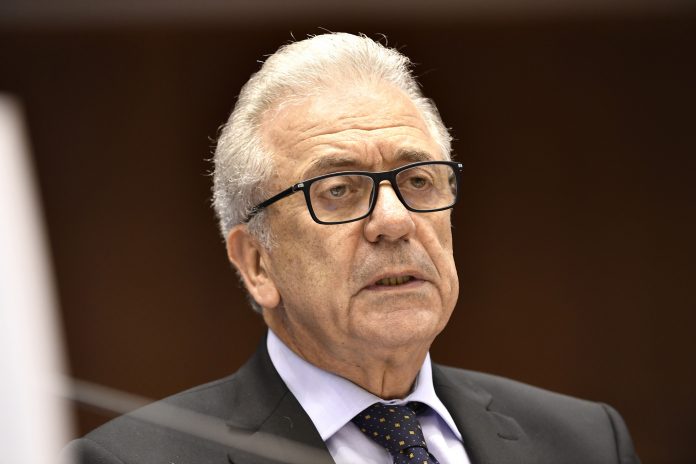The European Commission on May 16 published a report calling on European Union member states to prepare to respond for any seasonal migratory peaks or shifts in pressure, including from one route to another.
The report charts the progress made under the European Agenda on Migration and the Commission’s political roadmap towards a comprehensive migration agreement presented in December 2017. It notes the following actions: plugging persistent gaps in assets for the European Border and Coast Guard, improving returns, boosting resettlement and protecting migrants along the routes are all on the European agenda.
“This report confirms that we can only manage migration in a comprehensive way, through mutually reinforcing actions that are based on responsibility and solidarity,” said First Vice-President Frans Timmermans. “A reformed Common European Asylum System is a central part of this approach and together with the EU’s long term budget the EU will be ready to deal with any future migratory crisis. This reform cannot wait and I hope the European Council will be able to reach a deal in June.”
According to the EU’s Commissioner for Migration, Home Affairs and Citizenship Dimitris Avramopoulos, important progress has been, but the situation remains “fragile”.
“This is why I call on member states to urgently send border guards and equipment for the European Border and Coast Guard operations, but also to follow through on their commitment to reach an agreement on our asylum reform in June. We are once again reminded that we have absolutely no time to waste,” said Avramopoulos.
According to data presented by the Commission, a downward trend of 2017 has continued in the Central Mediterranean with arrival figures around 77% lower during the first few months of this year than those recorded in the same period in 2017.
However, arrivals from Turkey have seen a significant increase since March 2018 both to the Greek islands (9,349 since the beginning of 2018) and via the land border (6,108 so far in 2018 – nine times more than during the same period in 2017).
Arrivals on the Western Mediterranean route continued to show an upward trend with around 6,623 arrivals in Spain since January 2018 (22% higher than in the first months of 2017), according to the Commission’s report.
As for the European Border and Coast Guard Agency, which supports national border guards with some 1,350 deployed experts along all migratory routes, the Commission proposed to boost resources with an envisaged standing corps of 10,000.
Addressing the root causes of migration, the Commission noted that the EU Trust Fund for Africa has proved its worth, with 147 programmes, for a total amount of €2.59bn so far, funding crucial initiatives such as voluntary returns from Libya. However, a significant funding gap of around €1.2bn risks crippling these efforts if not addressed together by the EU and member states.
To sustain the EU’s comprehensive approach on migration and ensure Europe is equipped to deal with any future crisis, the Commission called on EU member states to fill gaps in border guards and equipment for the European Border and Coast Guard Agency and to fill the €1.2bn gap in funding for the EU Trust Fund for Africa.
Other actions include improving the conditions in Greece and accelerating returns to Turkey.

